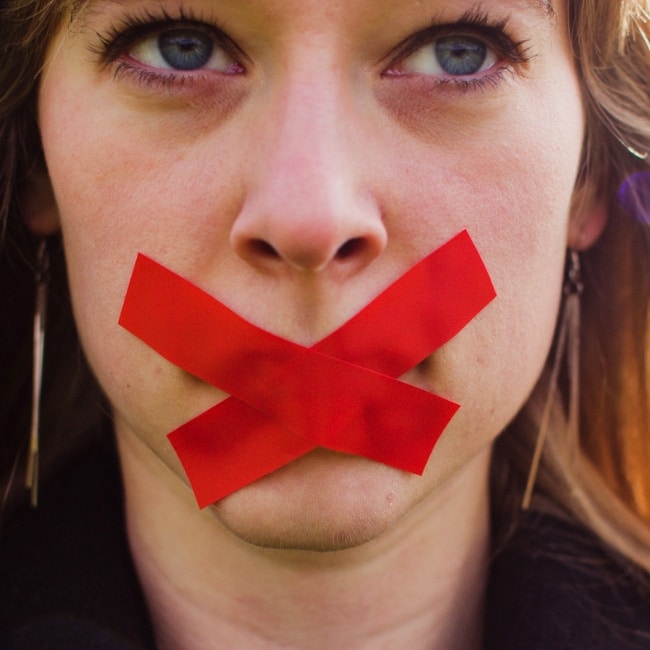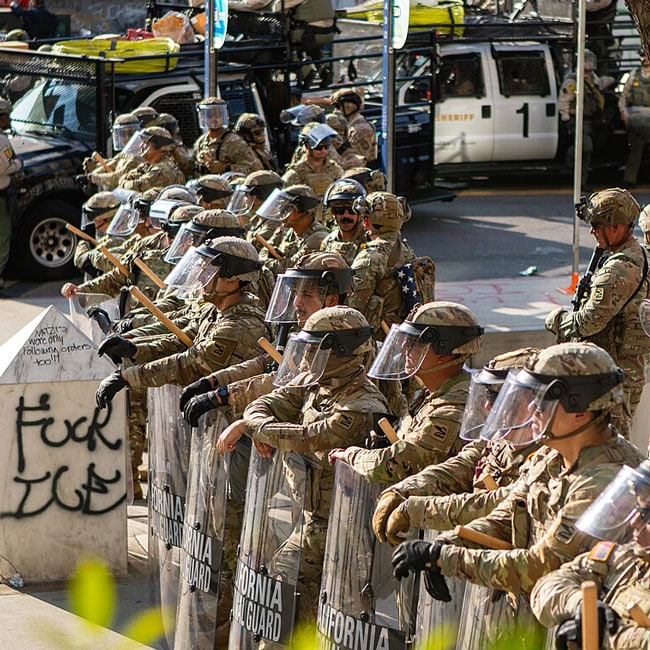
Sportswashing: How money and politics are corrupting sport
Opinion + AnalysisPolitics + Human Rights
BY Dr Tim Dean 9 NOV 2022
Many believe that sport transcends politics. But it can also be used as a political tool to distract attention from human rights abuses, making sportspeople and fans complicit.
Legions of football fans with faces daubed in their national colours fill the spotless new stadium and explode into a roar when their team lands the ball in the back of net at the FIFA World Cup 2022 in Qatar.
From the promotional video alone, the scene seems to exemplify what people love about big sporting events: the emotional highs and lows; the vibrant carnivale atmosphere; the fierce competitive spirit; the skill of the athletes.
But to the millions of migrant workers in Qatar, many of whom helped build the very stadiums that are to host the games, the World Cup likely means something very different.
Qatar has long been criticised for the kafala system of sponsorship-based employment for foreign workers, which has led to underpayment, wage theft and unsafe working conditions, leaving workers powerless to change their employment circumstances. Qatar also has a history of women’s oppression, with women requiring permission from a male guardian to exercise many basic rights, such as pursuing higher education, working in certain jobs or traveling abroad. LGBTI people have also been subject to discrimination and abuse in the country, even on the lead-up to the World Cup.
So it is no accident Qatar is spending billions to host the World Cup, with estimates suggesting the government has pumped over $US 220 billion into the event – more than fifty times what Germany spent in 2006 when it hosted.
This is ‘sportswashing.’ The Qatari government is hoping it can appropriate the positive associations fans have with football to elevate its own status on the international stage and distract from its ongoing human rights violations.
And Qatar is not alone in the practice: Saudi Arabia, another nation with a problematic human rights record, has spent over $US 2 billion on its LIV Tour for golf; and China, criticised for its ongoing persecution and internment of its Uyghur minority, spent billions hosting the 2022 Winter Olympic Games.
But what’s so bad about a country with a troubling human rights record supporting or hosting an unrelated sporting competition? Does watching or travelling to that country to attend the competition make spectators complicit in human rights abuses? And shouldn’t sport be kept separate from politics? To answer these questions, we first need to be clear about what sportswashing is.
What is sportwashing?
Sportswashing refers to states – sometimes individiuals or corporations – that seek to use sport to bolster their image by distracting from their wrongdoing. It’s typically not just a matter of hosting games or supporting a national team but rather pumping money into sport specifically to change people’s attitudes about them.
Why sport?
Sport is more than just entertainment. It exemplifies what many people believe to be noble or aspirational virtues: discipline, hard work, individual excellence, teamwork. For spectators, sport generates intense feelings of belonging and a shared identity that verges on the sacred; a win for one’s team elevates oneself and one’s whole community. Sport also reaches a wide audience, including people who may not actively follow politics or world affairs.
So if a regime wants to bolster its reputation around the world, it’s hard to beat tapping into the positive associations people have with sport, especially high profile sports like golf, football or the Olympics. And all you need to do it is enough money. But what does all this money really achieve?
First impressions
What springs to mind when you think of Qatar? For many people whatever it is will be informed by what’s in the media. And if the media has been focusing on Qatar’s human rights violations, it’s these that can define their impression of the country.
This is why nations like Qatar are so keen to offer you new impressions. One function of sportswashing is to saturate the news – and internet search results – with topics other than human rights. If people know little about Qatar, and the World Cup pushes its human rights violations to the second page of Google’s search results, then fewer people will be made aware of them.
There’s another upshot of sportswashing: given many people have powerful feelings about sport, if the majority of the news they hear about Qatar is connected to their beloved game, then their feelings for sport can bleed over into their impression of the country.
Once that positive connection with sport is established, it can come to clash with negative associations they have about human rights violations, causing cognitive dissonance, which describes a tension between two opposing ideas. Most people tend to dislike the feeling of dissonance and will seek to eliminate it, often by ejecting one of the dissonant thoughts. Sportswashing nations hope that the ejected thought is the one about human rights rather than sport.
This is where sportswashing becomes ethically problematic. To the degree that it distracts from wrongdoing, such as human rights violations, it can contribute to the perpetuation of that wrongdoing. Countries are often motivated to enact reforms when they experience pressure from other states, especially large democractic states that are reacting to internal public pressure. If the population is distracted by sport, then public pressure can wane.
Just not cricket
Sportswashing is insidious, as it co-opts something that is otherwise benign and makes those who innocently endorse it complicit in achieving a political end.
But just because someone was not aware of, or chose to ignore, the political dimension of the sporting event, that doesn’t mean they are absolved of responsibility. Sadly, sportswashing makes anyone involved in it complicit to some degree.
If we believe that our ethical obligations extend to those parts of the world that we affect through our actions, then we must consider how our spectating or participating in a sportswashing event might contribute to perpetuating human rights abuses. If we are paying to attend a sportswashed event, we are contributing financially to enabling that event to take place, and through our attendance, we are normalising that activity for others.
There is an even greater ethical weight placed on the shoulders of sportspeople, who are often viewed as role models and whose behaviour can be seen to normalise certain values. This is why we place such emphasis on sportspeople behaving responsibly on and off the field, such as in nightclubs or in their private relationships.
If a sportsperson accepts money to participate in a sportswashed event, that sets a standard for others. And if they are aware of the ethically problematic nature of their hosts, then this opens them to a charge of hypocrisy, as in the case of Phil Mickelson, one of the world’s top golfers, who accepted $US 200 million to join the LIV Tour despite admitting he was aware of Saudi Arabia’s “horrible record on human rights”.
Washing sport
However, there are ways of pushing back against sportswashing. The first is to refuse to support it financially, such as by not buying tickets to the events or subscriptions to the coverage in the media. For some, this will mean missing out on watching a sacred sporting event, and it’s important not to understate how big a cost that might be for them.
However, if they choose to watch, they can consider how to reduce or nullify the impact of the sportswashing. That could involve informing themselves and others about the true state of affairs, reducing the informational distortion caused by sportswashing. In fact, there is evidence that Qatar’s World Cup sportswashing gambit may be backfiring by drawing attention to the very human rights issues it hopes to distract from.
Sportspeople have an even greater responsibility but also a greater potential impact for good. Some have refused to participate in sportswashed events, such as golfer Tiger Woods, who reportedly turned down an offer in excess of $US 700 million to join the Saudi-backed LIV Tour.
In some cases, participating in a sportswashed event can be offset if the individuals work to counter the sportswashed narrative, as in the case of the Australian Soccerros, who released a protest video about human rights in Qatar. While they are playing in the World Cup, they have used their platform to support migrant workers and the decriminalisation of same-sex relationships in Qatar. Football Australia also released a similar written statement. Arguably, more Australians now know about Qatar’s human rights record than if the state had never been chosen to host the World Cup.
When states are involved in funding sport, then sport can no longer be said to be removed from politics. Through sportswashing it becomes a political tool. If we want to maintain sport as a pure and sacred pursuit, then we must consider how we choose to engage with it and how we might avoid or counteract the power of sportswashing to distract or normalise wrongdoing.
Ethics in your inbox.
Get the latest inspiration, intelligence, events & more.
By signing up you agree to our privacy policy
You might be interested in…
Opinion + Analysis
Politics + Human Rights
Time for Morrison’s ‘quiet Australians’ to roar
Opinion + Analysis
Politics + Human Rights, Relationships, Society + Culture
Film Review: If Beale Street Could Talk
Opinion + Analysis
Climate + Environment, Politics + Human Rights, Relationships
A burning question about the bushfires
Opinion + Analysis
Politics + Human Rights




